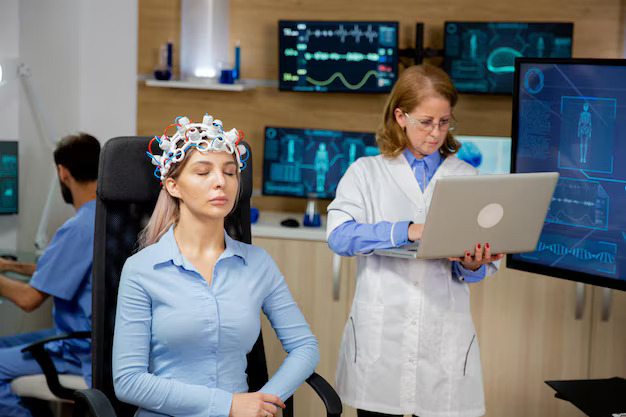How Claude AI Is Transforming Clinical Research and Healthcare Innovation
Claude AI revolutionizes clinical research with ethical, data-driven healthcare innovation.


The intersection of artificial intelligence and medicine has reached a transformative phase, where precision, speed, and safety converge to redefine how clinicians and researchers operate. Among the emerging AI Research Tools, Claude AI—developed by Anthropic—stands out as a model designed explicitly for ethical reliability and advanced reasoning. Unlike generic AI Chatbots, Claude AI was built to handle the complexity of medical data with constitutional safeguards prioritizing safety, transparency, and factual accuracy.
This article explores how Claude AI is reshaping clinical workflows, streamlining research analysis, and enabling data-driven healthcare innovation. It also evaluates its advantages and limitations compared to other AI for Research systems, offering a realistic perspective on the evolution of ethical and explainable medical AI.
AI Chatbots in ERs: Redefining Critical Care. Read more here!
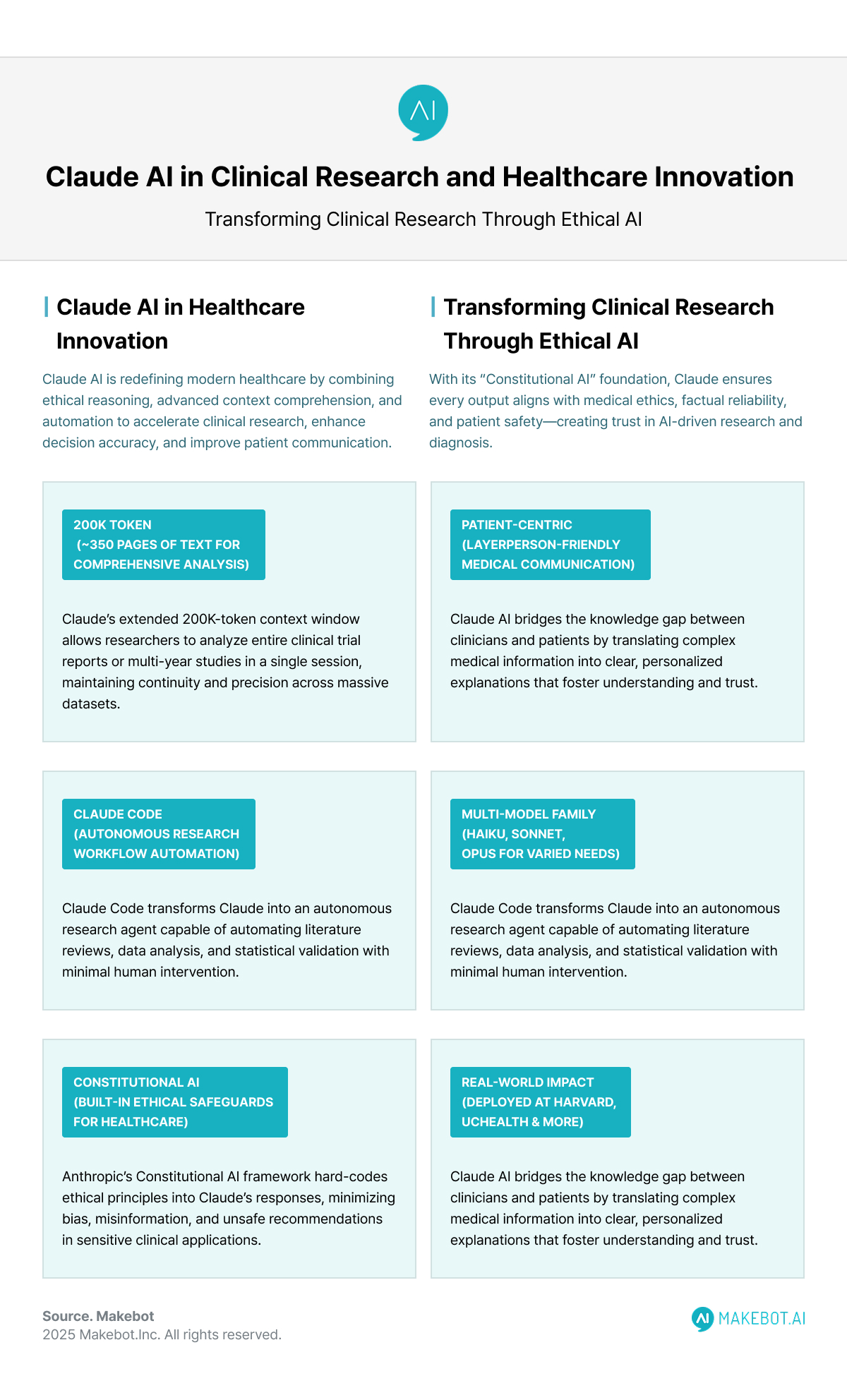
Understanding Claude AI’s Architecture and Ethical Design
Constitutional AI: The Foundation of Safe Medical Intelligence
Anthropic introduced the concept of “Constitutional AI,” an architecture built on explicit ethical rules guiding Claude’s behavior. This ensures that its recommendations remain accurate, unbiased, and aligned with healthcare safety principles. Unlike other AI Chatbots that optimize for engagement, Claude prioritizes factual correctness, privacy, and honesty—critical qualities in clinical settings where misinformation can endanger lives.
Through reinforcement learning from AI feedback (RLAIF), Claude learns to self-correct and moderate outputs based on pre-defined ethical constraints. This allows the model to handle sensitive data responsibly while refusing to produce harmful or speculative medical advice.
Technical Infrastructure Built for Research Depth
Claude AI’s transformer-based design enables granular understanding of scientific language and medical nuance. Its 200,000-token context window (equivalent to roughly 350 pages of text) is particularly advantageous for researchers conducting comprehensive literature reviews or multi-study analyses.
This allows for:
- End-to-end analysis of complete clinical trial reports
- Comparative synthesis of large-scale datasets
- Retention of research context over long, multi-session workflows
The Claude model family—Haiku, Sonnet, and Opus—caters to varying needs. Claude Opus, the most capable model, excels in hypothesis generation and complex reasoning, making it particularly effective for scientific research and biomedical analytics.
Revolutionizing Medical Research and Literature Synthesis
Accelerating Systematic Reviews
Systematic reviews are traditionally labor-intensive, often requiring months of screening and synthesis. Claude AI accelerates this process by categorizing and summarizing scientific evidence while maintaining methodological rigor.
It can:
- Extract study design and key outcomes
- Identify inconsistencies across datasets
- Map research trends and gaps over time
- Generate structured summaries highlighting correlations and anomalies
In practice, researchers have used Claude to compile multi-year literature maps for fields like immunotherapy and quantum biology, condensing thousands of papers into coherent thematic narratives.
Simplifying Technical Communication
Medical science thrives on precision, yet technical language often creates barriers to interdisciplinary collaboration. Claude AI automatically generates context-rich glossaries, clarifies ambiguous terms, and cross-links related concepts. This promotes inclusivity among cross-specialty teams—from bioinformatics to clinical pharmacology—by ensuring terminological consistency across projects.
Enhancing Clinical Workflows and Patient Communication
Smarter Documentation and Administrative Relief
Healthcare professionals spend up to 35-50% of their time on documentation. Claude AI’s summarization and contextual understanding capabilities alleviate this burden through automation of:
- SOAP notes generation (Subjective, Objective, Assessment, Plan)
- Action-item extraction from clinical discussions
- Consistent formatting of medical records across departments
Its ability to highlight clinically relevant changes—such as medication adjustments or symptom evolution—helps prioritize decision-critical information over routine documentation.
Patient-Centric Communication
With electronic health records now accessible to patients in real time, many experience confusion or anxiety over uncontextualized data. Claude AI bridges this communication gap by producing:
- Layperson-friendly summaries of lab results
- Personalized educational content about diagnoses
- Contextual FAQs anticipating patient concerns
The ideal model: AI-assisted, clinician-reviewed communication that enhances understanding while preserving trust.
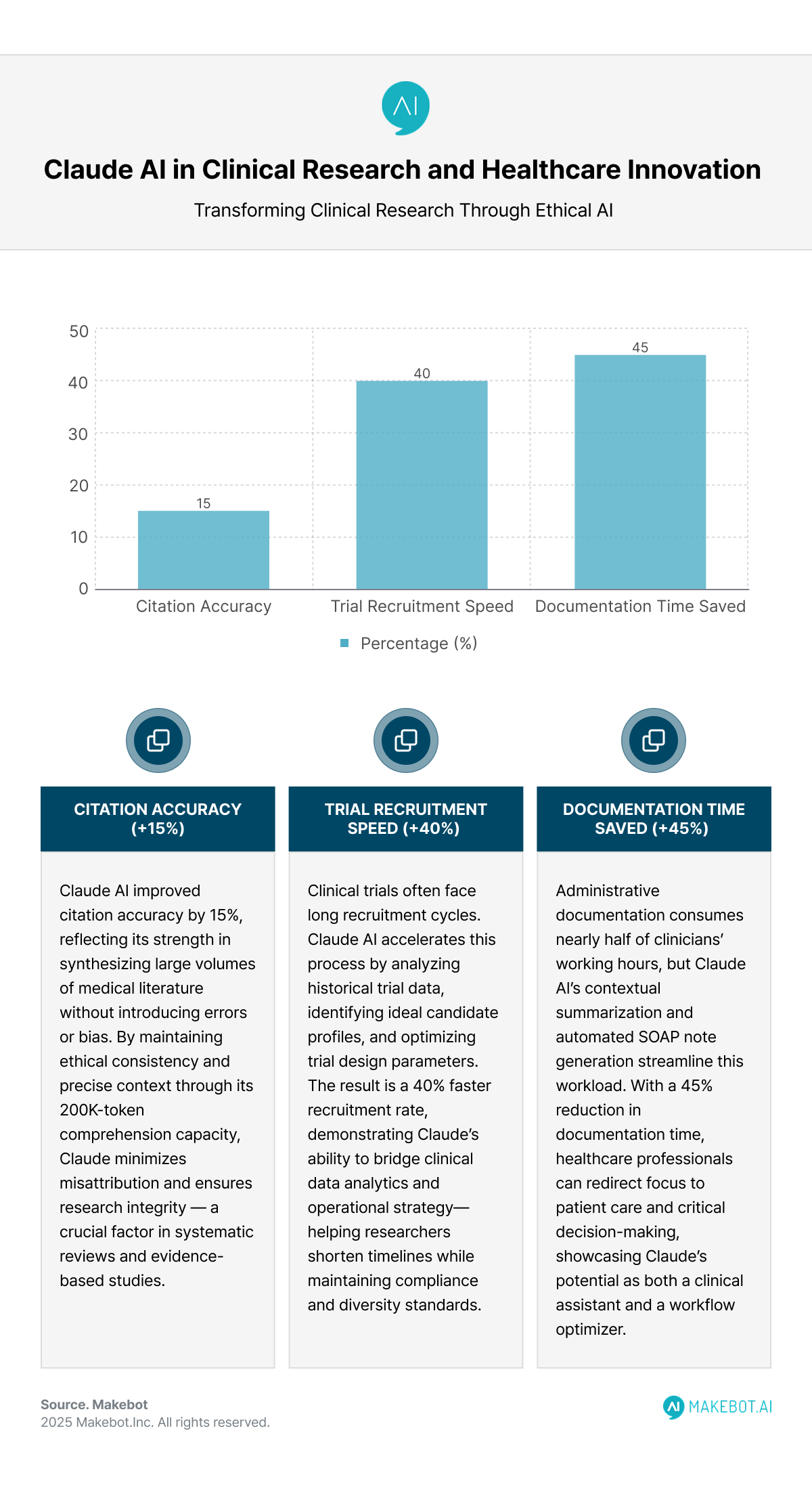
From Data Analysis to Drug Discovery: Advanced Research Applications
Quantitative Analytics and Visualization
Claude AI supports end-to-end data analytics for medical datasets, from preprocessing to visualization. Researchers can run descriptive or inferential statistical tests, identify confounding variables, and visualize survival curves—all within natural language interfaces.
When properly prompted, the system can:
- Compute Kaplan-Meier survival estimates
- Detect correlations between biomarkers and outcomes
- Suggest valid statistical tests based on data type
However, while Claude can assist with interpretation, final verification must still rely on traditional statistical software to prevent analytical bias or error propagation.
Accelerating the Drug Discovery Pipeline
Drug development, typically costing over $2.6 billion and spanning a decade, benefits immensely from Claude AI’s analytical depth:
- Target Discovery: Identifies potential therapeutic proteins or genetic pathways.
- Compound Screening: Predicts molecule-target interactions virtually, reducing lab costs.
- Trial Optimization: Analyzes historical data to refine trial design and dosing protocols.
This has led to measurable outcomes—like 15% higher citation accuracy and 40% faster recruitment in AI-assisted trials—highlighting Claude’s real-world research value.
What to Know About Claude 3.7 Sonnet, Anthropic's New Frontier Language Model. More here!
Claude Code: Expanding Automation in Medical Research
From Chatbot to Research Agent
Claude Code extends the base model into agentic AI territory—an autonomous assistant that executes complex, multi-step research workflows. It can read and write local files, manage research data pipelines, and integrate with APIs for real-time data retrieval.
Research Automation in Action
Common Claude Code workflows include:
- Automated journal monitoring and summary generation
- Dataset cleaning, visualization, and report updating
- Statistical cross-validation and citation accuracy checks
- Multi-document synthesis across disciplines
Through custom slash commands like /methodology-comparison or /statistical-review, researchers can enforce standardized, reproducible procedures across large projects.
Limitations and Ethical Imperatives
Even with its sophistication, Claude AI is not infallible. It can hallucinate data, misinterpret statistical relationships, or oversimplify medical nuance. Ethical deployment requires:
- Verification of AI outputs against primary literature
- IRB and HIPAA compliance for data handling
- Transparent reporting of AI contributions in research authorship
- Active monitoring for algorithmic bias across demographic variables
Institutions should establish AI validation protocols ensuring that Claude’s outputs undergo expert review before publication or clinical application.
Case Studies: Real-World Implementations
- Beth Israel Deaconess Medical Center (Harvard): Adopted Claude AI for literature synthesis, achieving consistent research quality through standardized prompting.
- UCHealth Colorado: Used Claude AI for radiology report summaries; high patient satisfaction rate, prompting further clinical integration.
- Biotech Clinical Trials: Claude-assisted recruitment shortened timelines, improving operational efficiency without compromising compliance.
The Future of AI in Medical Research
Next-Generation Capabilities
The roadmap for AI in healthcare includes multimodal analysis (text + images + genomics), real-time learning from new research, and federated AI for privacy-preserving model improvement. Future iterations of Claude AI may also offer Explainable AI (XAI) features—detailing the reasoning process behind outputs, enhancing transparency in clinical decision-making.
Regulation and Human-AI Collaboration
As regulatory bodies like the FDA formalize AI guidelines, researchers must balance innovation with accountability. The most successful ecosystems will be hybrid—combining AI speed with human interpretive skill, ensuring that AI remains a tool for empowerment, not replacement.
Showcasing Korea’s AI Innovation: Makebot’s HybridRAG Framework Presented at SIGIR 2025 in Italy. More here!
Conclusion
Claude AI represents a paradigm shift in how medical researchers process knowledge and data. Its ethical grounding, vast context capacity, and integrative capabilities make it a catalyst for faster, safer, and more inclusive healthcare innovation.
Yet, its true value lies not in automation, but in augmentation—enhancing human judgment, accelerating scientific discovery, and expanding access to world-class research tools. The future of AI in healthcare is not autonomous—it is collaborative.
As Anthropic and its peers continue to refine the boundaries of AI for Research, the institutions that adopt responsibly, verify rigorously, and collaborate openly will lead the next era of medical breakthroughs.
Makebot: Bridging Ethical AI and Real-World Healthcare Impact
In a healthcare landscape increasingly driven by AI for Research and clinical innovation, Makebot stands as the bridge between vision and practical deployment. Just as Claude AI showcases how ethical and explainable AI can accelerate discovery and improve outcomes, Makebot empowers healthcare institutions to operationalize these same capabilities through industry-specific LLM agents and regulation-ready AI Chatbot systems.
From hospitals deploying conversational clinical assistants to research centers automating literature reviews, Makebot transforms complex AI integration into scalable, compliant, and data-secure solutions—ensuring healthcare innovation moves safely from pilot to production.
Backed by HybridRAG technology and a proven track record with leading hospitals such as Seoul National University Hospital and Gangnam Severance Hospital, Makebot’s solutions—BotGrade, MagicTalk, MagicSearch, and MagicVoice—help organizations transition from experimentation to measurable clinical and operational impact. Whether your goal is to enhance patient communication, streamline medical documentation, or accelerate drug discovery, Makebot delivers enterprise-ready AI infrastructure aligned with your institution’s ethical, operational, and research goals.
👉 Start your AI transformation today at www.makebot.ai or contact b2b@makebot.ai to explore how Makebot can help your organization lead the next era of AI in healthcare.

Studies Reveal Generative AI Enhances Physician-Patient Communication






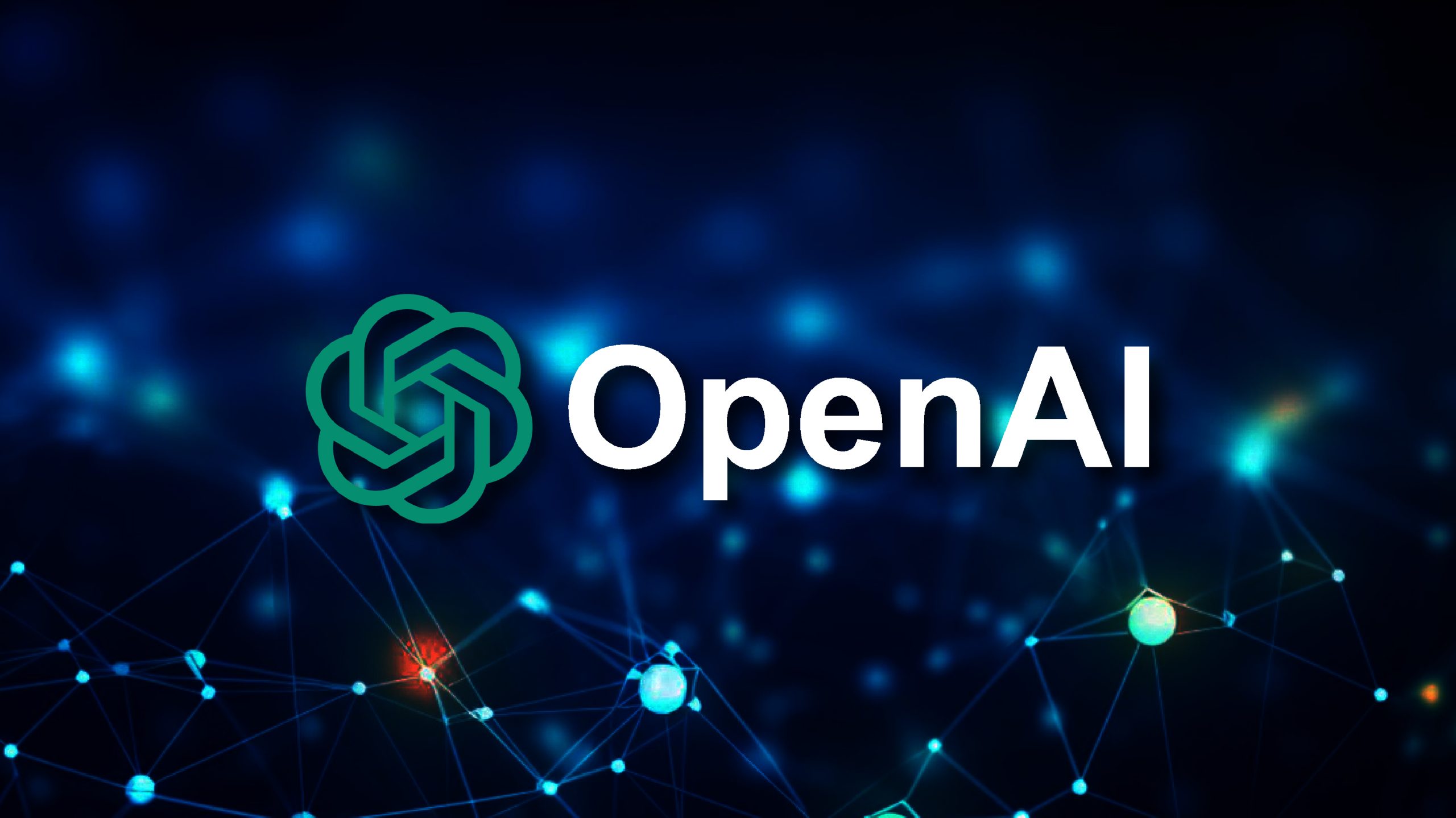



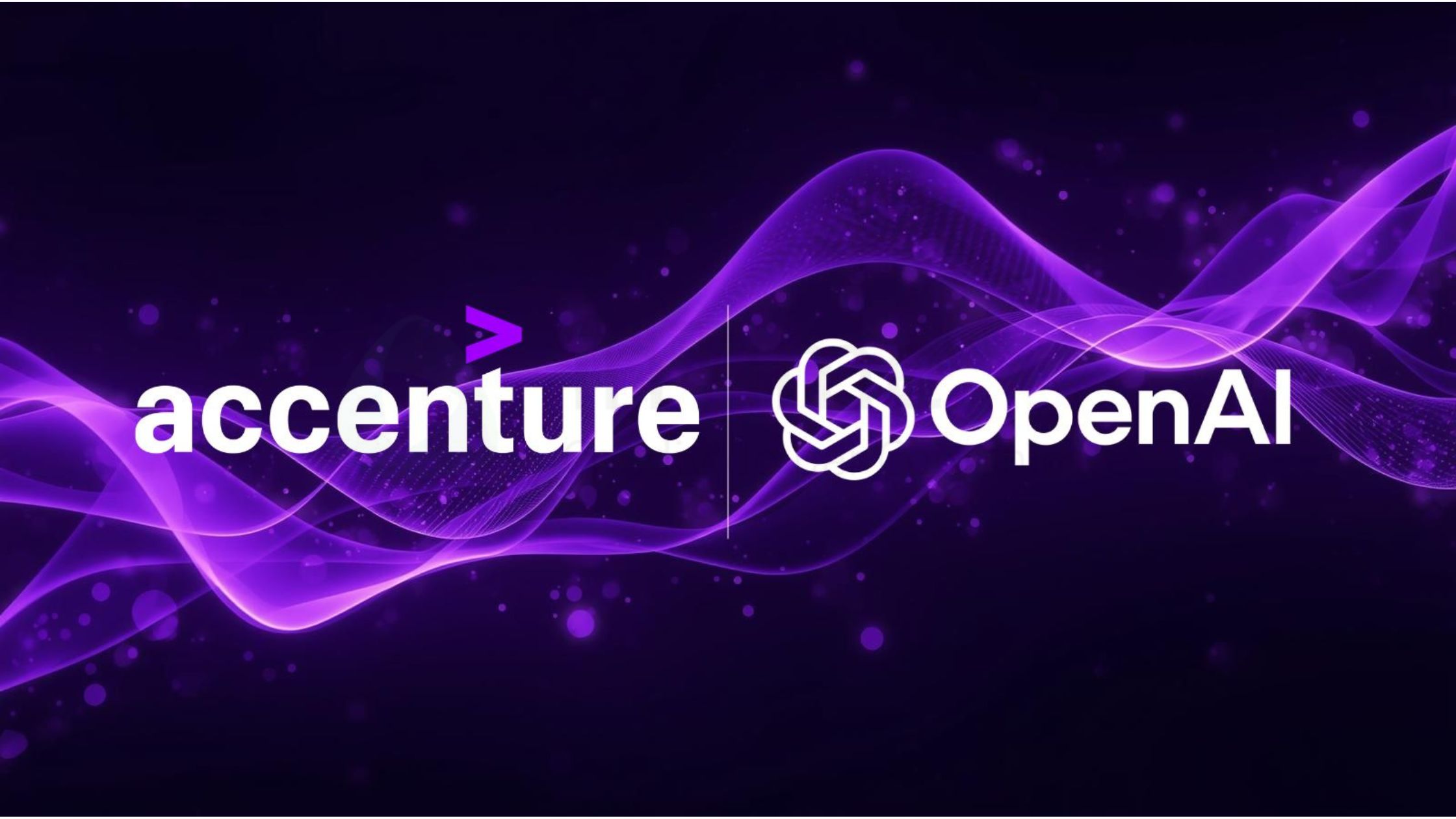









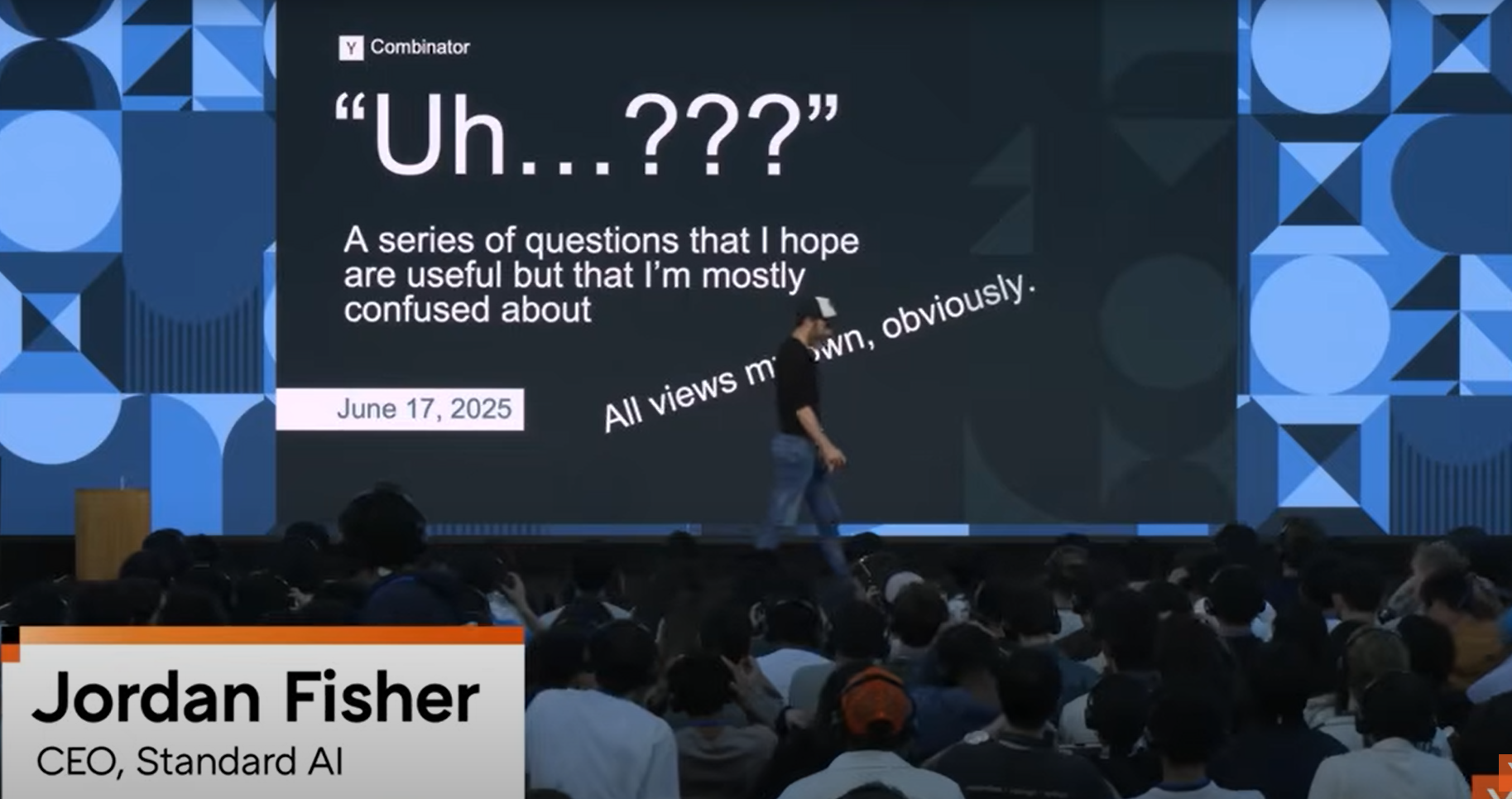














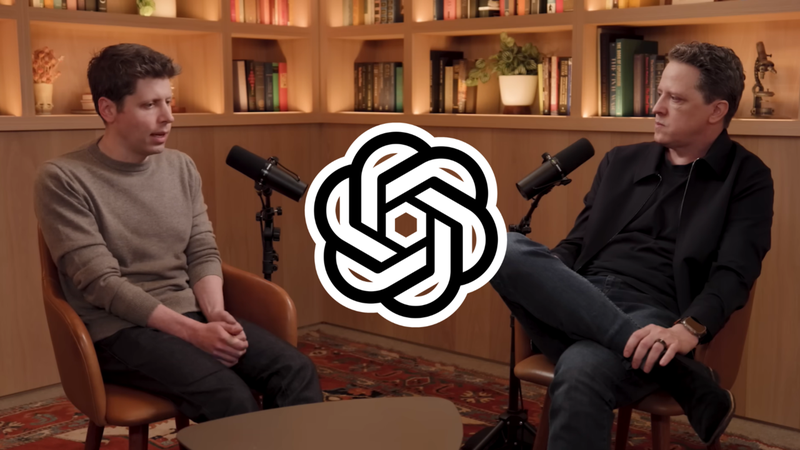





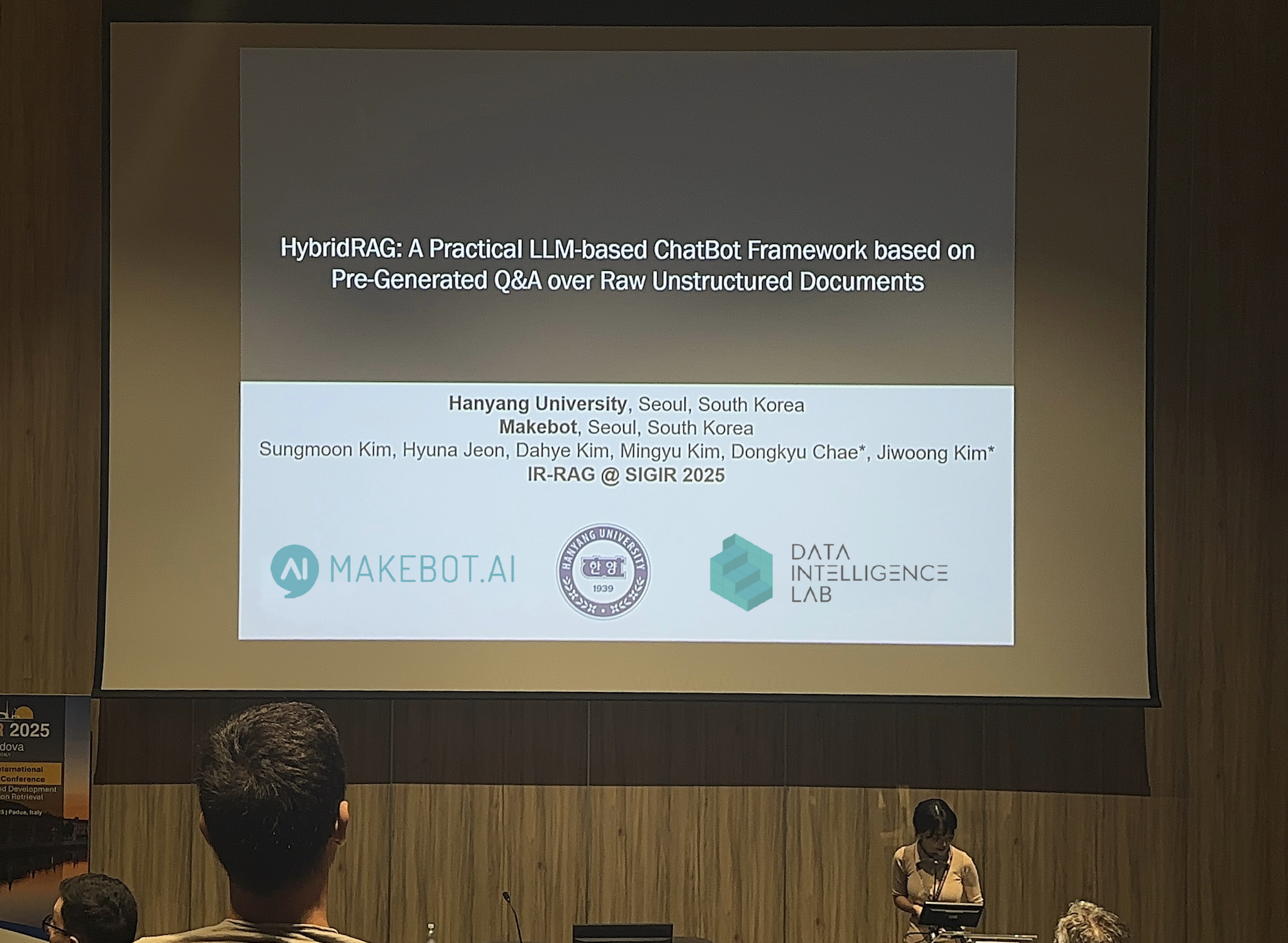









_2.png)


















.jpg)













